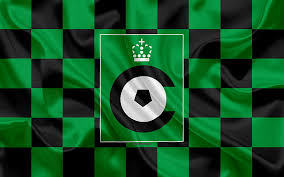Cercle Brugge FC: A Historical Overview

Cercle Brugge FC
Cercle Brugge FC is one of Belgium’s oldest and most storied football clubs, with a rich tapestry woven from over a century of competition, community involvement, triumphs, and setbacks. Founded in the late 19th century, this club has played an integral role not only in Belgian football history but also in shaping the sociocultural fabric of Bruges itself. Whether battling on the pitch or inspiring generations of fans, Cercle Brugge FC represents more than just a sports team; it is a symbol of heritage, resilience, and local pride. This article delves deep into the fascinating journey of Cercle Brugge FC, exploring its origins, key moments, cultural significance, and what the future might hold.
Origins and Foundation of Cercle Brugge FC
To fully appreciate the enduring legacy of Cercle Brugge FC, it is essential to begin with its humble beginnings. The story of how the club was born amid a burgeoning Belgian football scene reveals much about its identity and foundational values https://bet8803.net/.
Early Beginnings in Belgian Football
The late 19th century witnessed an explosion in popularity for association football across Europe. In Belgium, this period marked the establishment of several clubs that would become cornerstones of the national game. Amidst this enthusiasm, Bruges—a medieval city renowned for its canals and Gothic architecture—became fertile ground for sporting innovation. The local youth, inspired by their British counterparts, began forming informal teams and staging matches on any available patch of land.
It was within this context that Cercle Sportif Brugeois (later known as Cercle Brugge FC) was founded in 1899. Unlike many contemporary clubs that emerged from industrial or working-class roots, Cercle had close ties to the city’s French-speaking bourgeoisie and Catholic institutions, which influenced both its ethos and organizational structure. This foundation imbued the club with distinctive values emphasizing discipline, sportsmanship, and community engagement—traits that have persisted throughout its existence.
Establishment as a Football Club
Initially, Cercle operated as a multi-sport society, engaging in athletics, cricket, and cycling alongside football. However, with football’s rapid ascent to preeminence in Belgium, the club gradually prioritized this sport. By 1900, Cercle Brugge FC officially registered with the Belgian Football Association, gaining eligibility to participate in national competitions. This registration marked a significant turning point, formalizing the club’s transition into a dedicated football organization and positioning it within the country’s competitive landscape.
The choice of the club’s colors—green and black—symbolized growth, vitality, and strength, aligning perfectly with its ambitions. These colors soon became synonymous with passionate support and resilient spirit. Within just a few years, Cercle was competing against some of Belgium’s strongest teams, steadily building a reputation for technical skill and tactical intelligence.
Cultural Identity and Community Roots
From its inception, Cercle Brugge FC cultivated a unique cultural identity deeply intertwined with the city of Bruges. While rivals such as Club Brugge developed broader mass appeal, Cercle maintained a close-knit, almost familial atmosphere centered around tradition and loyalty. This bond with the community distinguished the club, fostering a sense of belonging among supporters that transcended mere fandom.
Religious affiliation played a notable role in shaping the early character of the club. Its Catholic orientation influenced recruitment policies, youth development programs, and even matchday rituals. Over time, while these religious underpinnings became less overt, the core values of integrity, respect, and unity remained steadfast, contributing to the club’s enduring appeal.
Furthermore, Cercle’s commitment to grassroots development set it apart. By nurturing local talent and engaging with schools and amateur clubs, it established itself as a pillar of the Bruges sporting ecosystem. This approach ensured that the club’s fortunes were intimately linked with those of the city, reinforcing mutual loyalty and pride.



